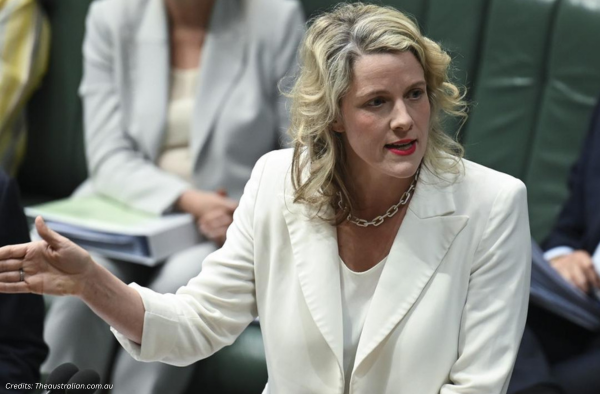Defence minister unveils ransomware ban strategy
Share

The Australian Minister for Defence has released the Annual Cyber Threat Report 2022–23, which details the country’s cybersecurity situation. The analysis demonstrates a significant increase in cyber risks requiring immediate government response. There has been a significant increase in ransomware cases, forcing the cybersecurity minister to campaign for a total ban on ransomware within the next two years. The Minister emphasises cooperation between governmental authorities, commercial organisations, and cybersecurity specialists as the government ramps up its efforts to confront cyber threats.
This collaborative approach is critical for improving cybersecurity skills, sharing threat expertise, and developing effective preventive measures. The proactive approach stated in the Annual Cyber Threat Report, along with the planned timetable for a blanket ransomware ban, indicates a determined response by the Australian government to strengthen the country’s defences and minimise the nation’s rising cybersecurity vulnerabilities.
Navigating present cybersecurity challenges
The Australian Minister for Defence’s recently issued Annual Cyber Threat Report 2022–23 illustrates a substantial rise in cyber attacks affecting both the public and commercial sectors. Data breaches, phishing attempts, and system intrusions have increased significantly, highlighting the growing complexity and regularity of cybercriminal activity. The report’s detailed overview covers the increasing strategies used by cybercriminals, emphasising the need for proactive action to handle the shifting cybersecurity situation.
In light of these results, it is apparent that handling the shifting nature of cyber threats requires a proactive strategy. The study serves as a foundational document for government agencies, commercial businesses, and cybersecurity specialists to work together to develop and implement successful policies in response to the dynamic challenges provided by cybercriminal activity. As the government ramps up its efforts to combat cyber attacks, the Annual Cyber Threat Report’s findings will be critical in defining policies and practices to improve national cybersecurity resilience.
Rising ransomware threats revealed
The growing risk of ransomware attacks is a major issue, with fraudulent actors encrypting data and demanding ransoms to unlock it. Recognising the enormity of the problem, the cybersecurity minister has recommended a two-year ban on all forms of ransomware. The proposed strategy aims to substantially diminish the financial damages resulting from these assaults while simultaneously safeguarding the integrity of sensitive information.
The proposal’s urgency is emphasised by the necessity to protect sensitive information from unauthorised access and misuse. As the government focuses its efforts on combating the spike in ransomware outbreaks, the proposed prohibition is an important step towards fortifying Australia’s cybersecurity landscape. It is consistent with the wider goal of safeguarding the nation’s vital infrastructure and guaranteeing the continuity of important services in the face of emerging cyber threats.
Minister’s cybersecurity initiative
The Cybersecurity Minister has taken a stern position, setting a two-year deadline for the implementation of a total prohibition on ransomware. This proactive response illustrates the government’s steadfast commitment to reinforcing Australia’s cybersecurity posture in the face of ever-present cyber threats. The strategy includes a variety of strict regulations targeted at identifying, tracing, and prosecuting people or groups actively involved in ransomware attacks.
The proposed prohibition is a strategic response to the recent rise of ransomware outbreaks, demonstrating the government’s proactive attempts to combat the rising threat. By establishing a concrete timeframe, the government aims to establish a robust framework for combating ransomware, therefore protecting key infrastructure and minimising any interruptions to important services. The proposal’s resilient requirements demonstrate the government’s desire to tackle the root causes of ransomware, strengthening its commitment to national cybersecurity resilience.
To fulfil the goals outlined in the plan, a collaborative effort including government agencies, private businesses, and cybersecurity specialists is required. Cooperation is essential in creating and executing successful anti-ransomware measures that protect vital infrastructure. The Cybersecurity Minister’s proactive approach displays a commitment to decisive action, which aligns with the larger aim of defending the nation against the persistent and increasing threats posed by ransomware assaults.
Strategic collaboration in the industry
The Minister emphasises the need of collaboration among government agencies, private organisations, and cybersecurity professionals in bolstering the nation’s cybersecurity defences. The proposed two-year strategy emphasises a collaborative effort aimed at improving cybersecurity capabilities through shared knowledge and resources. This collaborative endeavour includes the exchange of threat intelligence among stakeholders, enabling a more proactive and comprehensive awareness of evolving cyber threats.
Government agencies will collaborate with business enterprises and cybersecurity specialists to use their unique capabilities as part of this engagement. The exchange of threat intelligence is critical in this process because it provides all stakeholders with timely and relevant information to respond to evolving cyber threats. This partnership is vital in establishing a robust cybersecurity infrastructure capable of reacting to developing cybercriminal techniques, eventually assuring the protection of critical national assets.
In response to the rising cyber threat situation, the Minister for Defence advocates a complete ransomware prohibition within the next two years. This strategic plan is highlighted by a coordinated effort between government and industry partners, which is critical in bolstering the nation’s defences against the growing threat of cyber assaults. The proposed prohibition is consistent with the government’s commitment to take swift action, as indicated by the stringent regulations stated in the Annual Cyber Threat Report.
The Minister’s proposal, as well as the collaborative efforts reflect the government’s recognition of the vital significance of securing critical infrastructure and protecting against ransomware attacks. As the country struggles with the difficulties faced by cyber attacks, the proposed ban and cooperative measures detailed in the Annual Cyber Threat Report constitute a proactive and steadfast response to protect Australia’s digital landscape.

Justin Lavadia is a content producer and editor at Public Spectrum with a diverse writing background spanning various niches and formats. With a wealth of experience, he brings clarity and concise communication to digital content. His expertise lies in crafting engaging content and delivering impactful narratives that resonate with readers.


Today’s Pick
11th Annual Aus Goverment Data Summit
April 1, 2025
7th Annual NZ Government Data Summit
May 7, 2025
3rd Public Sector Comms Week
May 14, 2025
Subscribe
We send emails,
but we do not spam
Join our mailing list to be on the front lines of healthcare , get exclusive content, and promos.
AI appointment Australia Australian boost boosts business businesses covid-19 cyber cyber attack cybersecurity cyber security data data breach data management defence Digital employment enhance enhances fraud funding governance government grants infrastructure Innovation Lockdown management new zealand NSW NZ online privacy public Public Sector queensland renewable energy scams security Social Media Technology telecommunications victoria
-

Understanding and building your digital strategy
Digital Government, Opinion
-

Featured Leader: Jamie Morse on multi-channel strategies for communication
Communications, Featured Leader
-

Featured Leader: Tegan Tembe of NSW Treasury on creating solid planning strategies and processes
Featured Leader
-

Wirraka Maya Health Service improves patient care with My Health Record
Learning
Show More-

Effects of ineffective communication in the workplace
Communications, Personal Development
-

7 ways you can enhance your personal development skills
News, Personal Development
-

5 advantages of working in the public sector
News, Personal Development, Professional Development
-

7 causes of communication issues in the workplace
Communications, News, Personal Development
Show MoreLast Viewed